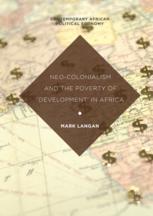

Most ebook files are in PDF format, so you can easily read them using various software such as Foxit Reader or directly on the Google Chrome browser.
Some ebook files are released by publishers in other formats such as .awz, .mobi, .epub, .fb2, etc. You may need to install specific software to read these formats on mobile/PC, such as Calibre.
Please read the tutorial at this link: https://ebookbell.com/faq
We offer FREE conversion to the popular formats you request; however, this may take some time. Therefore, right after payment, please email us, and we will try to provide the service as quickly as possible.
For some exceptional file formats or broken links (if any), please refrain from opening any disputes. Instead, email us first, and we will try to assist within a maximum of 6 hours.
EbookBell Team

4.3
78 reviewsLangan reclaims neo-colonialism as an analytical force for making sense of the failure of ‘development’ strategies in many African states in an era of free market globalisation. Eschewing polemics and critically engaging the work of Ghana’s first President – Kwame Nkrumah – the book offers a rigorous assessment of the concept of neo-colonialism. It then demonstrates how neo-colonialism remains an impediment to genuine empirical sovereignty and poverty reduction in Africa today. It does this through examination of corporate interventions; Western aid-giving; the emergence of ‘new’ donors such as China; EU-Africa trade regimes; the securitisation of development; and the UN Sustainable Development Goals. Throughout the chapters, it becomes clear that the current challenges of African development cannot be solely pinned on so-called neo-patrimonial elites. Instead it becomes imperative to fully acknowledge, and interrogate, corporate and donor interventions which lock many poorer countries into neo-colonial patterns of trade and production. The book provides an original contribution to studies of African political economy, demonstrating the on-going relevance of the concept of neo-colonialism, and reclaiming it for scholarly analysis in a global era.